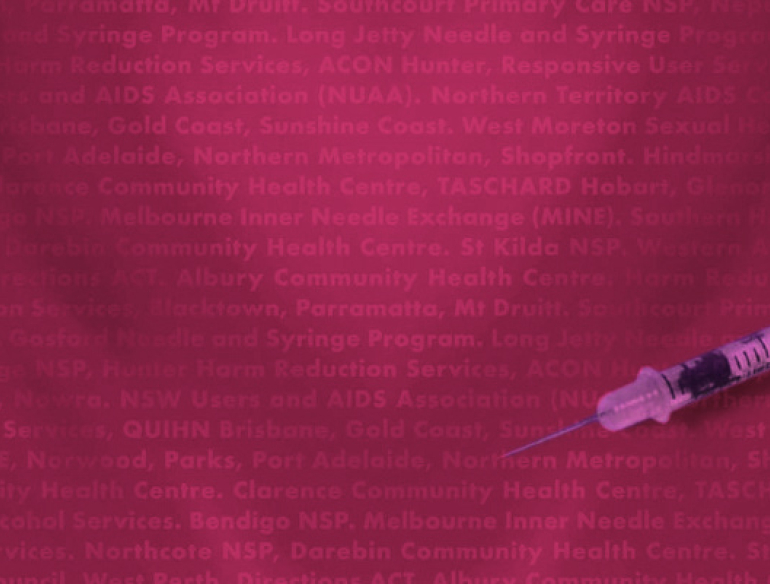- HIV antibody prevalence remained low, nationally, at less than two percent, except among male participants reporting homosexual identity (37.5% in 2009).
- The decline in HCV antibody prevalence was observed in all states and territories with the exception of South Australia where a substantial decline in prevalence was observed in 2008.
- While the median age of survey participants increased in recent survey years, median age did not increase in 2009 and remained stable at 36 years in both 2008 and 2009.
- The proportion of participants reporting daily or more frequent injection in the month prior to the survey remained stable at between 47% and 50% over the last five years.
- Receptive sharing of needles and syringes was reported by around 15% of participants in all of the past five survey years. Reports of receptive sharing of ancillary equipment were more common, reported by around one third of participants. Around one quarter of participants reported reuse of needles and syringe in the month prior to survey completion.
The Australian Needle and Syringe Program Survey (ANSPS) is a cross-sectional study that has been conducted over a one to two week period each year since 1995. The survey forms the basis of Australia’s human immunodeficiency virus (HIV) and hepatitis C surveillance among injecting drug users, and monitors behavioural indices of risk in addition to prevalence of infection.
All clients attending selected NSP sites during the specified survey period are asked to complete a brief self administered questionnaire and to provide a capillary blood sample for HIV and hepatitis C antibody testing. Demographic and behavioural data captured includes injecting ,and sexual behaviour, blood borne virus testing, drug treatment and needle and syringe acquisition.
A National Data Report, summarising national and state/territory data is produced by the Kirby Institute on an annual basis.
